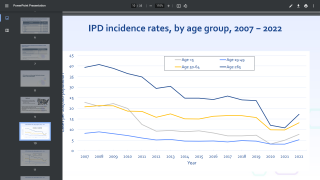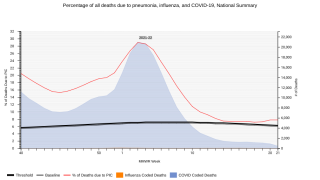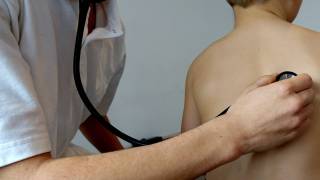Emory University Takes Vaccine Development Leadership Role

Emory University announced it will lead a new effort aimed at developing vaccines and other therapies to combat infectious diseases.
Announced by the National Institute of Allergy and Infectious Diseases (NIAID) on December 19, 2019, Emory is leading 7 other academic institutions that will form the new Infectious Diseases (ID) Clinical Research Consortium Leadership Group.
The other institutions represented on the ID leadership group are Baylor College of Medicine; John Hopkins University; University of Alabama Birmingham; the University of Cincinnati (and Cincinnati Children’s); the University of Maryland, Baltimore; the University of Washington; and Vanderbilt University.
This announcement says David S. Stephens, M.D., professor and chair of the Department of Medicine in Emory University School of Medicine and vice president for research of Emory’s Woodruff Health Sciences Center, will serve as the ID leadership group’s principal investigator along with Kathleen Neuzil, M.D., professor of medicine and pediatrics at the University of Maryland.
Additionally, part of the National Institutes of Health (NIH), NIAID intends to provide approximately $29 million per year over 7 years for nine Vaccine and Treatment Evaluation Units (VTEUs) around the country and the companion leadership group.
For more than half a century, NIAID has supported the VTEUs which have performed high-quality clinical research to test new vaccines and therapies for infectious diseases in adults and children.
An important strength of the VTEUs is their ability to enroll large numbers of volunteers into trials rapidly and vaccinate them in a safe, effective and quick manner. This rapid-response capability is especially important for testing vaccines designed to counteract emerging public health concerns says the NIAID website.
The other 8 VTEU sites are Baylor College of Medicine; Cincinnati Children’s Hospital Medical Center; Kaiser Permanente Washington Health Research Institute; Saint Louis University; University of Maryland School of Medicine; University of Rochester; University of Washington; and Vanderbilt University Medical Center.
Moving forward, these VTEUs will work with the new leadership group to enhance integration, efficiency, and collaboration in order to address NIAID priorities.
NIAID Director Anthony S. Fauci, M.D., said in a related press release, “This flagship program aligns with NIAID’s dual mission of conducting robust, wide-ranging biomedical research on existing infectious diseases while maintaining readiness to respond to emergent disease threats with the quick design and launch of clinical trials. We anticipate that the addition of a centralized leadership group will further enhance the effectiveness of this time-tested program.”
One of the primary goals of NIAID research is to develop new vaccines against infectious diseases, such as pneumococcal infections.
The World Health Organization estimates that more than 1.6 million people, including more than 800,000 children under five, die each year from pneumococcal infections.
NIAID has invested more than 30 years of research into developing pneumococcal vaccines.
Early product development support, as well as Phase I and II studies conducted by VTEU sites in infants, were helpful in developing Prevnar, a vaccine to prevent pneumococcal diseases in children younger than 2 years of age.
VTEUs also test new ways to deliver vaccines.
For example, VTEUs enrolled young children in a Phase III trial of FluMist, an influenza vaccine administered by nasal spray. The vaccine was 93 percent effective against the predominant flu strains of the 1996-97 flu season.
In 1998, researchers inoculated the children against three flu strains thought to be circulating that season. The nasal spray vaccine was 86 percent effective against not only the flu strains covered in the vaccine but also against a circulating strain not included in the injected form of the vaccine.
Furthermore, to respond to public health emergencies, the leadership group will have the capacity to rapidly organize and initiate clinical trials at the VTEU sites.
The grant number for the leadership group award is 1 UM1 AI148684-01.
Vaccine Research news published by Precision Vaccinations
Our Trust Standards: Medical Advisory Committee

























